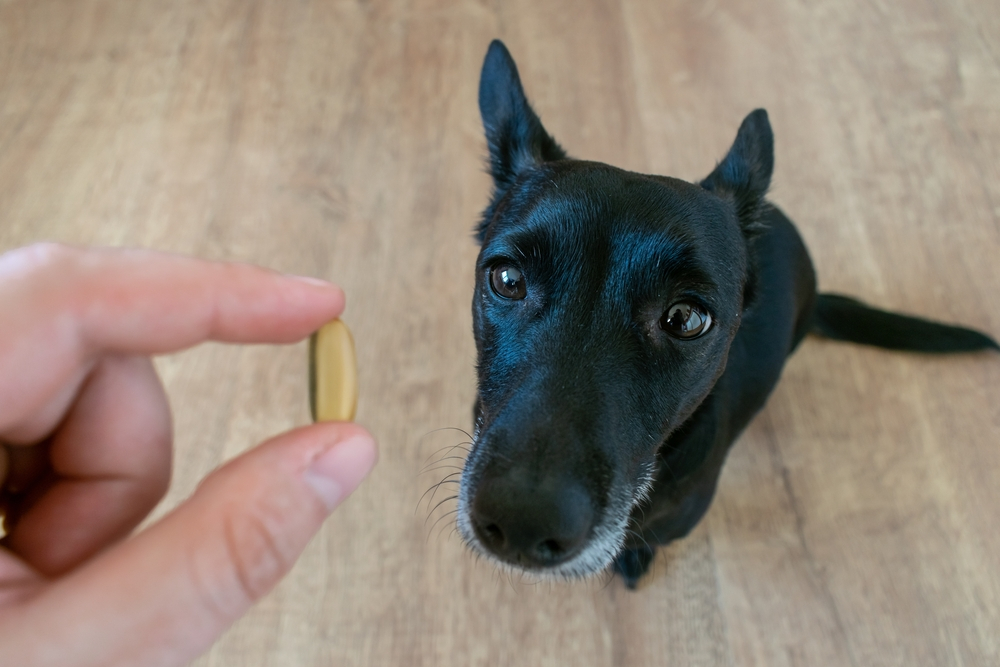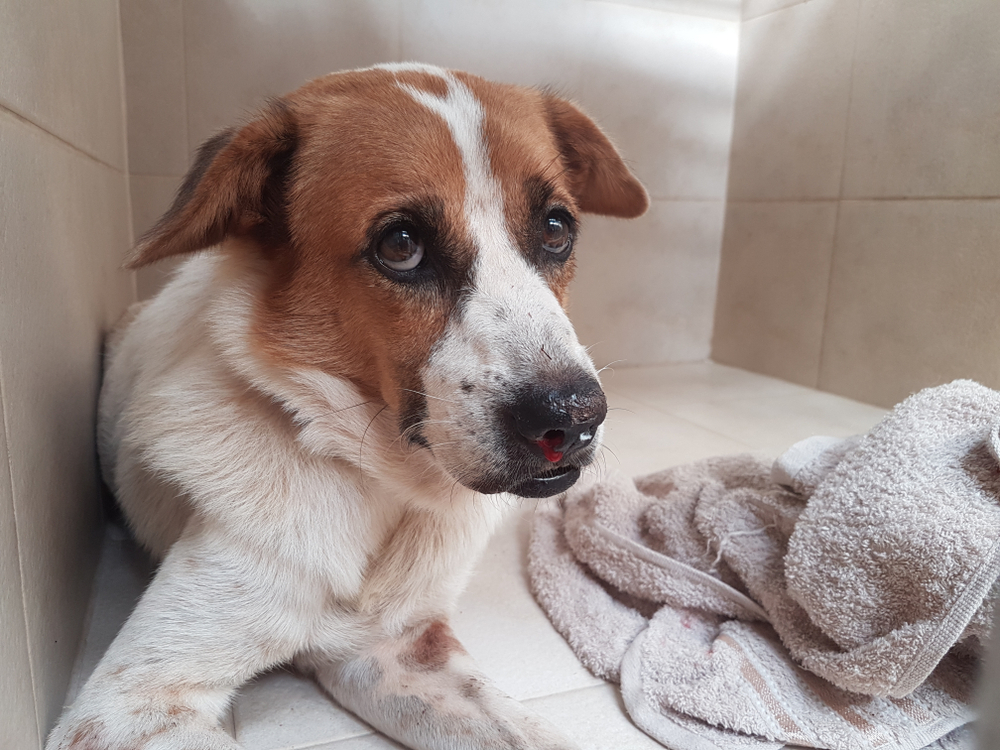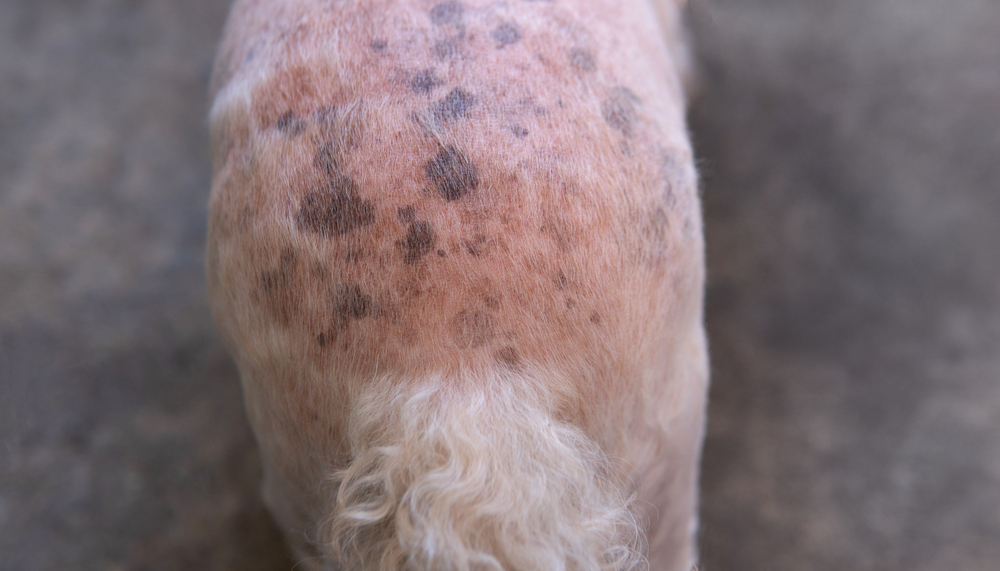Dog Fish Oil Overdose Symptoms: 5 Signs To Must Know
By  Maria Fernandes |
Last updated: Apr 20 2023
Maria Fernandes |
Last updated: Apr 20 2023

Fish oil supplements are popular among dog owners as they are believed to provide numerous health benefits, including improved skin and coat health, joint support, and cognitive function. However, like any supplement, too much of a good thing can be harmful. In this article, we will discuss dog fish oil overdose symptoms and what to do if you suspect your dog has ingested too much.
Related Article: Black Spots on Dog’s Skin Reasons & Treatment
What is Fish Oil and How is it Used in Dogs?
Fish oil is a dietary supplement derived from the tissues of oily fish, such as salmon, mackerel, and sardines. It contains omega-3 fatty acids, which are essential nutrients for dogs as they cannot be produced by their bodies.
Omega-3 fatty acids are known to have anti-inflammatory properties, which can benefit dogs with conditions such as arthritis, allergies, and skin irritations.
Fish oil supplements are available in various forms, including capsules, liquid, and chews. The recommended dosage of fish oil for dogs depends on their weight, age, and health condition. It is always best to consult with your veterinarian before starting any supplements for your dog.
Symptoms of Fish Oil Overdose in Dogs
While fish oil supplements can provide many health benefits, an overdose can cause various symptoms that can affect your dog's health. The severity of symptoms depends on the amount of fish oil ingested and the size of your dog.
Here are some of the most common symptoms of a fish oil overdose in dogs:
1Diarrhea and Vomiting:
If your dog has ingested too much fish oil, they may experience diarrhea and vomiting. These symptoms can lead to dehydration, which can be dangerous for your dog, especially if they are young or have underlying health conditions.
Click here to learn more about causes and symptoms of diarrhea in dogs

2Bad Breath:
One of the most noticeable symptoms of a fish oil overdose is bad breath. This is due to the excess oil in your dog's system, which can cause an unpleasant odor.

3Loss of Appetite:
A fish oil overdose can cause your dog to lose their appetite. This can be a concern if your dog is already underweight or has a health condition that requires them to eat regularly.

4Itching and Skin Irritation:
Although fish oil is commonly used to improve skin health, an overdose can have the opposite effect. Your dog may experience itching, rashes, or other skin irritations.

5Bleeding:
In rare cases, a fish oil overdose can cause bleeding, both internally and externally. If you notice your dog bleeding from their nose, gums, or other parts of their body, seek veterinary attention immediately.

What to Do if You Suspect Your Dog Has Ingested Too Much Fish Oil
If you suspect your dog has ingested too much fish oil, the first thing you should do is contact your veterinarian. Your veterinarian will be able to determine the severity of the overdose and recommend the appropriate treatment.
In some cases, your veterinarian may recommend inducing vomiting to remove the excess oil from your dog's system. However, this should only be done under the guidance of a veterinary professional as it can be dangerous if not done correctly.
In severe cases, your veterinarian may need to hospitalize your dog and provide supportive care, such as intravenous fluids, to prevent dehydration and other complications.
Preventing Fish Oil Overdose in Dogs
The best way to prevent a fish oil overdose in dogs is to follow the recommended dosage guidelines and consult with your veterinarian before starting any supplements. It is also important to store fish oil supplements in a secure location that is out of your dog's reach.
If you have multiple dogs, make sure to give each dog their individual dosage and do not share supplements between them. Additionally, avoid giving fish oil supplements to pregnant or nursing dogs
Written by
Maria Fernandes
Maria Fernandez is a veteran writer fueled by tea and enjoys spending time with her pets. Maria is Pet Enthusiast and focuses on animal welfare. Maria Fernandez is also an active member of the American Society for the Prevention of Cruelty to Animals (ASPCA). Through her beloved narrations, Maria shares her extensive knowledge of animal behavior and nutrition. She aims to help pet owners have a joyful life with their pets with the help of the latest medical research. Maria is passionate about her work and loves spending time writing about animals. Maria tries to know animals' behavior and shares her updated research with pet lovers across the globe.







































